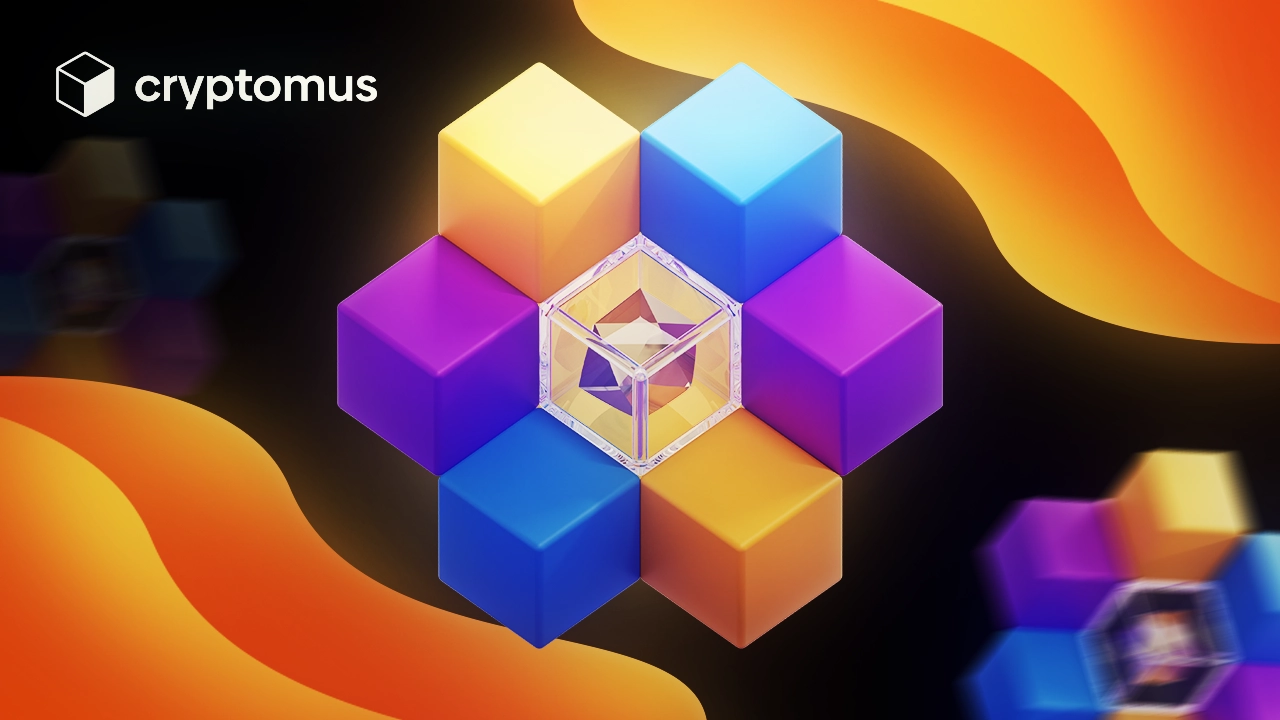Artificial Intelligence and Blockchain Technology
Artificial Intelligence and blockchain are cutting-edge technologies that are literally being discussed all over the world. Together, they affect a whole range of human activities, from finance to information security. Their impact is becoming more and more visible, and there is a growing opinion that combining them can lead to more efficient, secure and transparent solutions.
In this article, we will take an in-depth look at the synergies between blockchain and AI technology and discover what potential for growth it has.
What is AI and How Does it Relate to Blockchain?
Let's first understand the basic concepts and answer the question of what is AI and blockchain. Blockchain is a distributed digital ledger where peer-to-peer nodes negotiate connections to be added to the blocks of the network chain. In addition to the connections, the blocks also store transactions, which have unique hash values along with timestamps for verification. The blocks connected together as a chain give rise to the term "blockchain". Such a chain of countless peer-to-peer networks remains virtually unchanged and is known for providing the desired protection against data alteration.
Artificial intelligence does unimaginable things and closes its main task of modeling human intelligence with machines. To do this, it uses various equations that like the equations of blockchain technology try to reduce human error while providing faster transactions.
In this way, we see a connection between concepts like blockchain technology and artificial intelligence that today seek to speed up and establish workflows.
How Does Blockchain and AI Work Together?
To understand how AI and blockchain work together, it's important to remember that they share the same goal: to unlock new opportunities, increase efficiency, and impact different industries.
Here's how the blockchain and AI tandem makes it happen:
-
Blockchain is known for its immutability and transparency, which can improve the integrity of data used in AI systems. How it works? Thanks to blockchain technology, AI algorithms can access tamper-proof and auditable data, while ensuring accurate analytics and improving the reliability of predictions. So, blockchain, for example, can be used to track and document the movement of cryptocurrencies. And the AI on the blockchain can then analyze this data to find patterns, or detect irregularities.
-
It turns out that the difference between AI and blockchain may influence their complementarity. AI systems need access to vast datasets for research. At the same time, blockchain, without relying on a single intermediary, allows parties to share data with each other while maintaining privacy and control over sensitive data. And that means blockchain can close the need for AI by offering its systems a secure and decentralized platform for sharing information. For example, in finance, transaction records stored on blockchain can be securely shared with AI models for research or diagnostics, while protecting sensitive information.
-
There is a platform called SingularityNET (AGIX) that combines blockchain & AI to create a decentralized marketplace where people who provide computational resources, train models, or provide data can be compensated in the form of tokens for their efforts. That is, by rewarding participation in research and technology development with tokens, blockchain in AI stimulates and supports the further advancement of artificial intelligence systems.

Concerns of AI and Blockchain Technology
Integrating AI with blockchain presents certain challenges:
-
Data Security and Privacy: A blockchain focused on transparency may face the privacy requirements inherent in AI systems. Therefore, the combination of blockchain and artificial intelligence is likely to be unsuitable for sectors with strict confidentiality laws.
-
High Power Consumption: AI in blockchain requests high computing power requirements, the utilization of which leads to environmental impact problems.
-
AI & Blockchain Scalability: Slower consensus mechanisms and blockchain systems find it difficult to quickly process the large amounts of data required for real-time AI systems.
-
Interoperability Challenges: For AI blockchain technology to work in sync, highly optimized and efficient data integration strategies and data sharing models must be followed. This requires a lot of effort and research.
How AI and Blockchain are Revolutionizing Various Industries?
Let's look at blockchain and AI use cases in different areas:
-
Medicine: In this field, blockchain is used to store and share medical data, while AI is used here to analyze this information. Such synergy improves diagnostic accuracy and helps create new treatments.
-
Finance: In this area, AI on blockchain technologies are improving financial transaction processes and helping to detect fraud and optimize risk management.
-
Logistics: Blockchain for AI can be used by autonomous vehicles to enable unregulated and secure data exchange between vehicles. This idea has already inspired the creators of the MOBI project, which aims to create an ecosystem of autonomous car mobility based on blockchain technology artificial intelligence concept.
Other industries such as agriculture, manufacturing, energy, law and government are also feeling the impact of the convergence of AI and blockchain. The development of this tandem will bring additional innovation, increased efficiency and transformation of processes in various industries, which can lead to the creation of new business models and growth of the economy as a whole.
Future Prospects of Intersection of AI and Blockchain
The future of the blockchain and AI combination is quite promising and anticipates the creation of various trends, including further development of machine learning algorithms, increased accountability and transparency in AI systems, and the expansion of decentralized AI markets.
Also, today we have realized that blockchain is considered a shared and permanent registry that will be used to encrypt and store data, while the AI framework allows humans to analyze and make decisions based on the collected data. This difference in technology could lead to blockchain making AI more consistent, understandable and logical.
Rate the article



comments
0
You must be logged in to post a comment